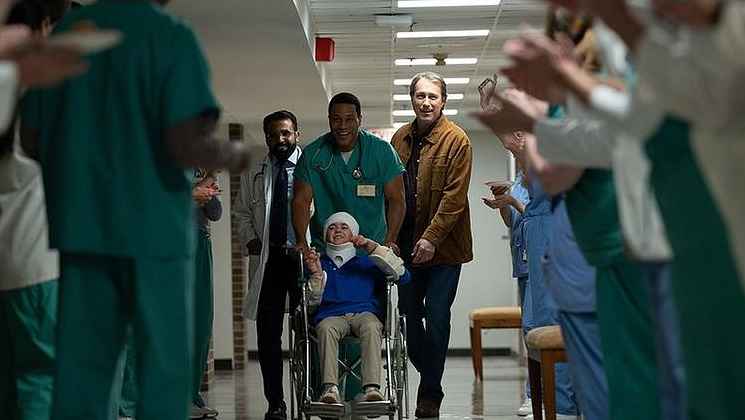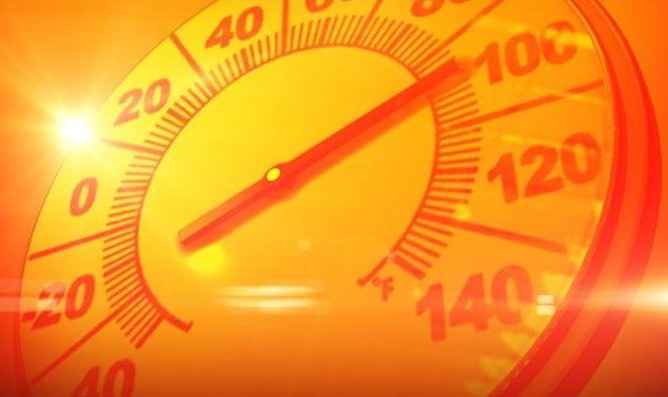





See listing of Recent and Most Popular articles on the Home Page
Health & Wellness
Category: News & Current Events / Topics: Advice, Guidance & Mentoring • Coping • Nature • News • Optimal Aging • Seasons • Trends • Wellness
Summer Really is Getting Hotter
Posted: July 16, 2022
How to prepare and stay cool…
Editor's Note: Remember life without air conditioning? That's how many of us grew up, with memories of sweltering summers. When I was growing up, we would escape the stifling summer of Chicago for a cottage near Lake Michigan. Now, when it gets hot, we escape inside, our homes, cars, stores and malls (if you still have one near you). One of the earliest places to find air conditioning was movie theaters.
It's not just our imaginations, but overall across the U.S. and other parts of the world, summers are getting hotter. With many ideas on how to cope is Tara Yharlagadda writing at Inverse this past week. Her article is pretty detailed, with lots of ideas, so we;ll give you the bullet points here with plenty of links to follow and then you can follow the link at the bottom of the page for the full article. (We;ve changed some of the formatting of the article for better clarity in the abbreviated form here). Stay cool!
Summer is officially underway, and with it comes extremely hot temperatures. At least 65 million Americans across several different US states experienced an extreme heat event above 100 degrees Fahrenheit in the past month.
An extreme heat event — also known as a heat wave— generally refers to a period when temperatures are much hotter or more humid than average. The federal government defines it as “a period of high heat and humidity with temperatures above 90 degrees for at least two to three days,” though that may vary depending on the specific region.
These hot temperatures aren’t going anywhere. As the planet warms, scientists predict they will become more severe and frequent. Inverse spoke with a wide range of experts from public health and disaster experts to HVAC specialists to help you prepare for extreme heat this summer.
What happens to the body during a heat wave?
Extreme heat brings with it an increased likelihood of death and illness from heat stroke and dehydration. Certain populations, such as the elderly, people who live alone, pregnant people, individuals with disabilities or chronic medical issues, athletes, people working outdoors, and children, are particularly vulnerable to extreme heat.
“An older person has impaired abilities to lose heat,” Glen Kenny, research chair in heat strain monitoring and management at the University of Ottawa,” tells Inverse, referring to a condition known as hyperthermia, in which the body cannot regulate heat properly.
The hotter it gets outside, the greater the risk of heat stroke.
“During heat stroke, body temperature regulation is disrupted, which causes fever, reddening of the skin, dizziness, and increased heart rate and respiration,” Rosmy Barrios, a regenerative medicine specialist and head of anti-aging at the Internal Medicine clinic in Serbia, tells Inverse.
Normally, we take in heat from the environment and it evaporates through our sweat which allows us to maintain our core body temperature. “In a hot environment where it's a heatwave, your body's actually gaining heat from the environment,” Kenny says. So, your body has to work even harder to sweat more to stay cool. That becomes a problem in humid environments, where the sweat sticks to your skin and doesn’t evaporate, literally preventing you from cooling off.
How to prepare for extreme heat
Extreme heat can be deadly and systemic policy changes are crucial to preventing it, but you can reduce some of the individual risks through basic preparation.
- f you have air conditioning, change the filter frequently
- Keep blinds closed during the day – and consider investing in blackout shades
Several of the experts we interviewed suggest keeping the blinds closed during peak daytime hours. Less sunlight filtering into your home translates to lower temperatures, and lower energy bills.
“A cheap improvement is adding screens, window locks, and whatever other gear is needed to leave the right windows open for airflow moving through the house,” [said one expert]
- Use fans strategically
While fans are often suggested for those without air conditioning, [Glen\ Kelly says that at temperatures above 95 degrees Fahrenheit, a fan simply won’t be enough. It doesn’t “provide the appropriate benefit to protect against rises in core [body] temperature.”
That being said, a fan is still a good option for more modestly warm weather. Mark Woodruff, Senior Product Manager at Trane Residential — a company that sells HVAC products — tells Inverse that running a ceiling fan counter-clockwise will “create a downdraft of cool air” to help you keep temperatures lower in the summertime.
- No A/C? A DIY air conditioner might help
Davin Eberhardt, founder of Nature of Home, has expertise in home redesign and has been an electrician with the International Brotherhood of Electrical Worker since 2004. Eberhardt suggests taking a bucket of ice and cutting holes out of the sides, then placing a portable fan on top to make a DIY air conditioner.
Consumer Reports tried it out and found it can lower temperatures by two to three degrees — though they also noted temperatures began rising again about 30 minutes afterward, so it’s not effective over a longer period. . . .
- Open windows at night
“If you live in an area where it's cooler at night, opening your windows at night keeps the thermal mass of your house cold for longer,” Baker says.Ramey adds that installing window screens and locks would be a good idea. That way you can keep your home cool by opening windows but also keep your home secure.
How to stay cool (indoors and outdoors)
In general, Barrios says that “outdoor activities should be restricted if the temperature exceeds 90? F, as there is an increased risk of heat stroke.” Not everyone has the option to stay indoors during a heat wave, however. Shayne Stevens, Senior Corporate Director of Rosendin — an electrical contracting company that requires employees to partake in trainings to recognize and prevent heat illness — offers a few tips:
- Stay hydrated by drinking water regularly and taking regular breaks when possible.
- Avoid high-sugar and caffeinated beverages like energy drinks.
- Do the most physically demanding work earlier in the day when temperatures are cooler
- If you don’t have access to shade, consider relatively low-cost outdoor ventilation options like portable fans or misters
- Use a buddy system so you and your coworkers can check in on each other and schedule breaks together.
- Pay attention to signs of heat illness like heavy sweating, cramps, weakness, and dizziness
“It’s important to let your body adjust to the heat by limiting exposure in the beginning, taking more breaks, and hydrating,” Stevens says.
Drink water — a lot
Move slower
Wear sunscreen and find shade
Place cold towels or ice on the wrist, neck, and forehead
Limit cold showers
Sit in the lowest level of the home
Wear loose clothing
Limit exercise outdoors
Know the signs of heat stroke
“Heat stroke is the most serious heat-related illness. It occurs when the body can no longer control its temperature: the body's temperature rises rapidly, the sweating mechanism fails, and the body is unable to cool down,” Nadeau says.
t’s not always easy to spot signs of heat illness, and elderly people are often less reactive or responsive to recognizing something is wrong than younger people.
But he says there are some general warning signs you should keep out for:
- Thirst
- Feeling shaky or disoriented
- Slurred speech or confusion
- Malaise — a general feeling of discomfort
- Stomach upset/nausea
Prepare before riding public transit
Not everyone has access to a car, so if you’re taking public transit, you’ll need to find manageable ways to stay cool on the go. Find shade and hydrate whenever possible.
But the best method may depend on whether you’re experiencing dry or humid heat, because the body cools itself in different ways in each setting. In arid heat, evaporative cooling (a fancy term for sweating) is more effective.
“For instance, in a hot and dry climate like Phoenix, evaporative cooling works best, so it could help to carry a spray bottle with water,” Yuliya Dzyuban, a postdoctoral fellow at Arizona State University’s Urban Resilience to Extremes Sustainability Research Network, tells Inverse.
On the other hand, “on a hot and humid day in Atlanta, it would be best to carry a small fan, since the wind would be more important when the evaporative capacity of the body is limited by high humidity.”
If possible, you should also want to avoid the bench at the bus stop. Dzyuban says “it might not be a good idea to sit on a metal bench” because sun-exposed surfaces like metal and asphalt “can get sufficiently hot to burn the skin.”
Ask for workplace accommodations — and consult a legal hotline if needed
Tips for general emergency preparedness
Help your elderly neighbors and family members
Prepare ahead
Keep a good supply of drinking water, shelf-stable food, and a “go bag” on hand.
It’s always good to have supplies in case the power goes out during an extreme weather event or if it’s too hot to venture out for groceries.
“One of the most critical, universal preps is to have potable water stored in your home ahead of time,” Ramey says, adding “this can be helpful in a blackout, heatwave, or anything really.”
Montano adds that having a go-bag of your essential items in case you need to leave your home to go to a cooling center is a good idea. The Sierra Club has a handy list of items to include a go-bag, but some typical items would include food and water, batteries and a phone charger, and a first-aid kit.
Don’t forget about your pets
Locate your nearest community cooling center
Set up your phone for emergency alerts
Read the full article on Inverse for many more details and further resources.
Search all articles by Tara Yharlagadda
Posted: July 16, 2022 Accessed 422 times
![]() Go to the list of most recent Health & Wellness Articles
Go to the list of most recent Health & Wellness Articles
![]() Search Health & Wellness (You can expand the search to the entire site)
Search Health & Wellness (You can expand the search to the entire site)
![]() Go to the list of Most Recent and Most Popular Articles across the site (Home Page)
Go to the list of Most Recent and Most Popular Articles across the site (Home Page)
 Loading requested view...
Loading requested view...